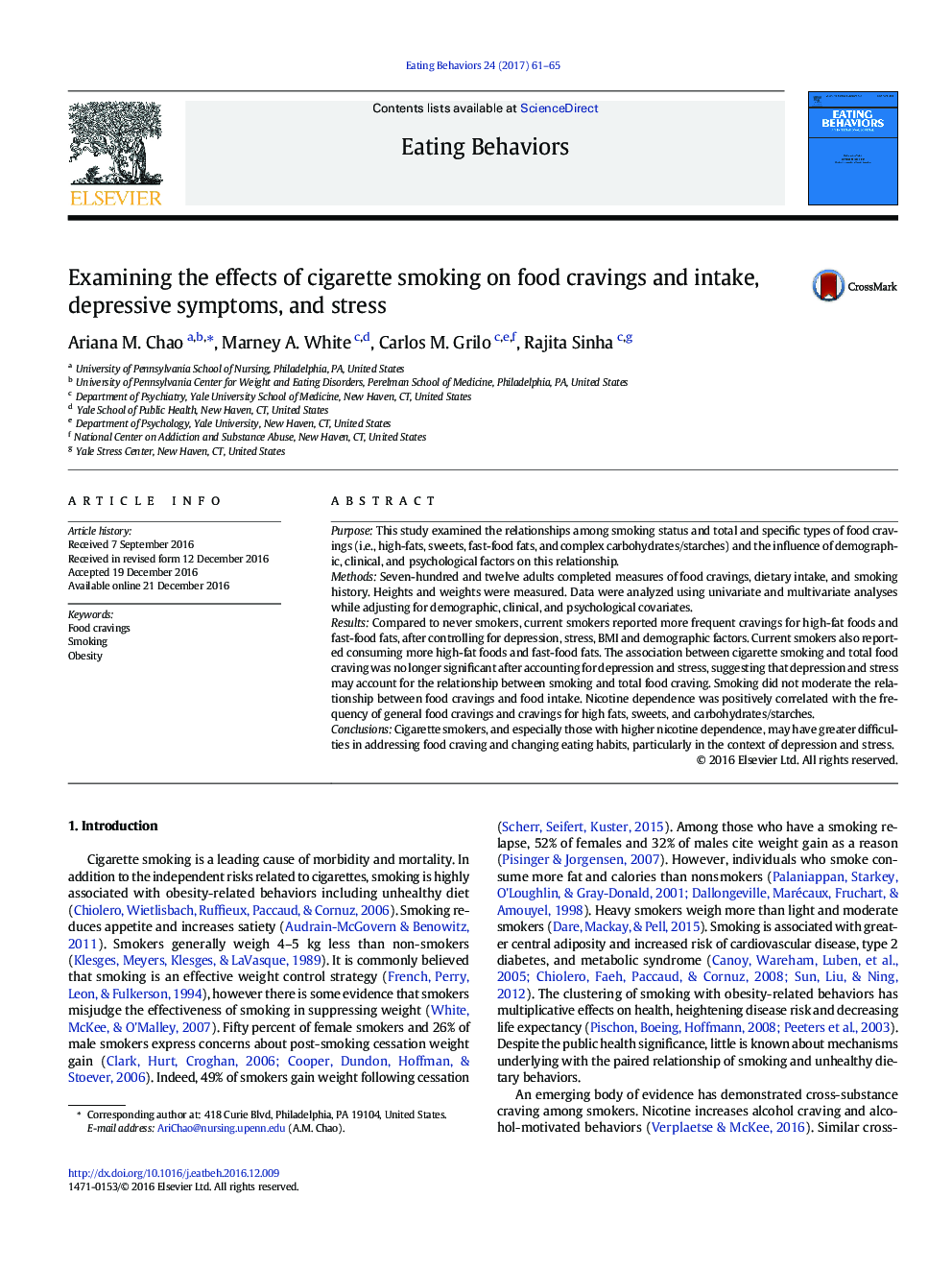| کد مقاله | کد نشریه | سال انتشار | مقاله انگلیسی | نسخه تمام متن |
|---|---|---|---|---|
| 5038757 | 1472879 | 2017 | 5 صفحه PDF | دانلود رایگان |
- Current smokers reported higher craving for high-fat and fast-food fats.
- Results remained significant after adjusting for stress and depression.
- Association between smoking and total food craving was not significant after adjusting for depression and stress.
- Current smokers reported higher habitual intake of high-fat foods and fast-food fats.
- There may be greater difficulties in changing eating habits among smokers.
PurposeThis study examined the relationships among smoking status and total and specific types of food cravings (i.e., high-fats, sweets, fast-food fats, and complex carbohydrates/starches) and the influence of demographic, clinical, and psychological factors on this relationship.MethodsSeven-hundred and twelve adults completed measures of food cravings, dietary intake, and smoking history. Heights and weights were measured. Data were analyzed using univariate and multivariate analyses while adjusting for demographic, clinical, and psychological covariates.ResultsCompared to never smokers, current smokers reported more frequent cravings for high-fat foods and fast-food fats, after controlling for depression, stress, BMI and demographic factors. Current smokers also reported consuming more high-fat foods and fast-food fats. The association between cigarette smoking and total food craving was no longer significant after accounting for depression and stress, suggesting that depression and stress may account for the relationship between smoking and total food craving. Smoking did not moderate the relationship between food cravings and food intake. Nicotine dependence was positively correlated with the frequency of general food cravings and cravings for high fats, sweets, and carbohydrates/starches.ConclusionsCigarette smokers, and especially those with higher nicotine dependence, may have greater difficulties in addressing food craving and changing eating habits, particularly in the context of depression and stress.
Journal: Eating Behaviors - Volume 24, January 2017, Pages 61-65
